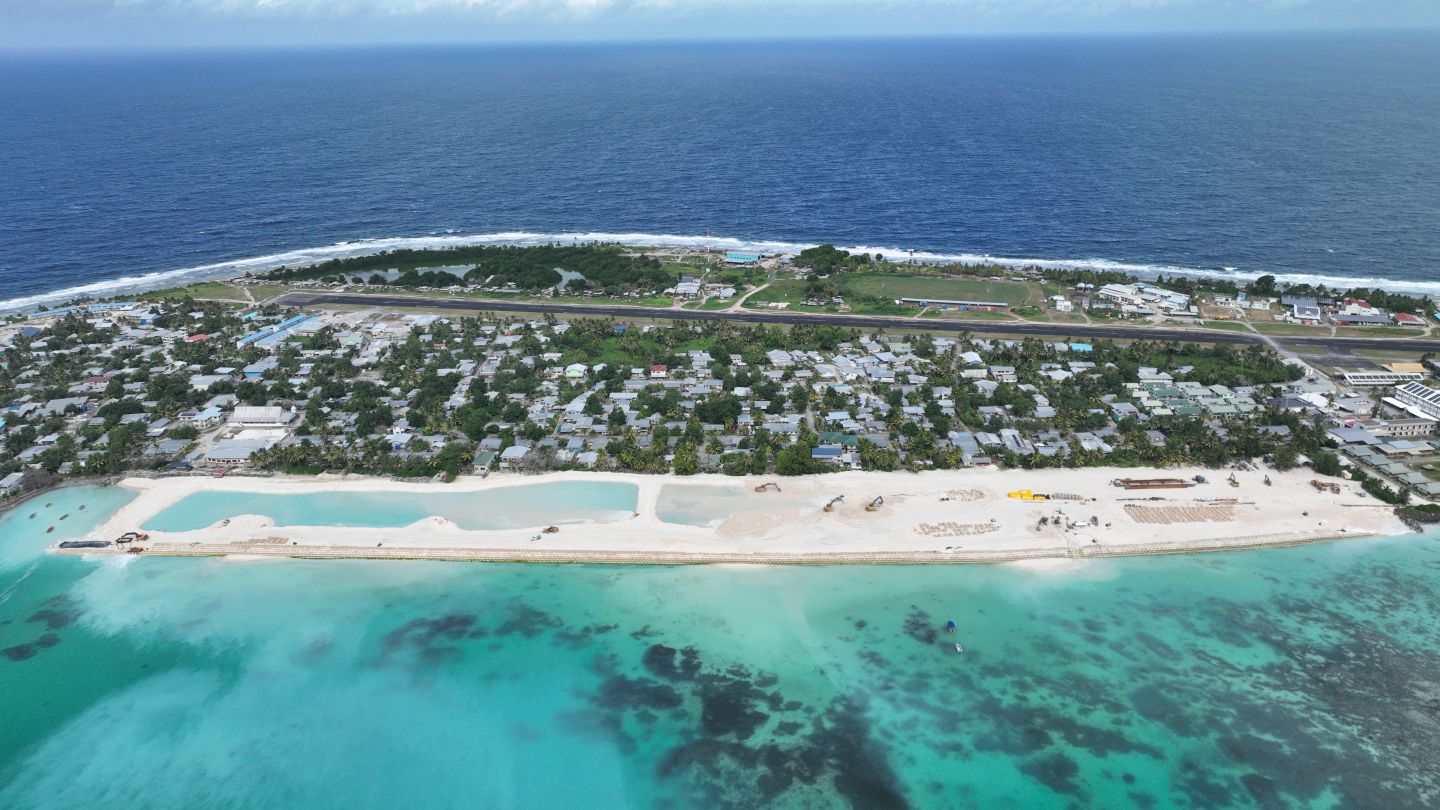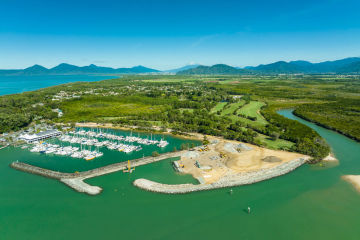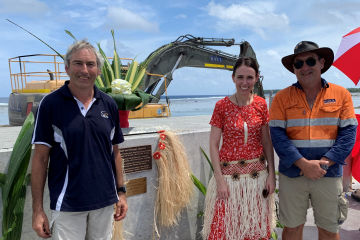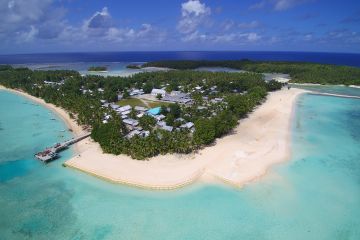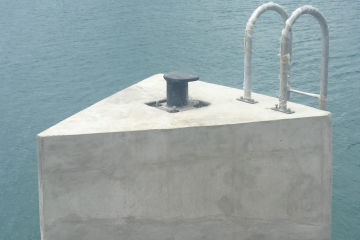Since mobilising to the Funafuti atoll in November 2022, Hall has dredged approximately 200,000m3 of sand from the adjacent lagoon, which is being used to construct a 78,000m2 bunded foreshore reclamation area.
Hall General Manager – Marine Infrastructure Daniel Grey said to date, the team had placed approximately 80 per cent of the sand-filled geotextile containers that border the reclamation area.
“Once the remaining part of the bund is installed in the next few weeks, our crew will commence constructing a boat harbour and breakwater at the northern end of the reclamation.
“This infrastructure will enable community members to safely park their vessels and access the reclamation area.”
Daniel said the boat harbour and breakwater were scheduled for completion in mid-October, at which time workers would relocate to the Nanumanga atoll to construct a 665m berm top barrier and boat ramp.
“The project will wrap up in Nanumea, where Hall will undertake beach renourishment works and construct a 1,330m berm top barrier, 170m Seabee seawall and seven reef-top barriers.”
Daniel said meticulous planning was paramount when undertaking works in Tuvalu, with team members running through every eventuality prior to mobilisation and listing every item they anticipated they may require to reduce the likelihood of lengthy project delays.
“Given the country’s remote location, we don’t have the luxury of being able to source most materials and equipment locally, so we must transport everything we need to carry out the project from Fiji and Australia.
“We own and operate our own tugboats and barges and have developed strong relationships with shipping and logistics companies in the Pacific Islands, which enables us to ship large quantities of materials in and out of Tuvalu.
“We have also established our own workshop locally, so we can conduct plant maintenance and repairs in Tuvalu.”
Daniel said Hall had employed more than 80 Pacific Islanders as part of the project, including 60 Tuvaluans and 20 Fijians.
“We’re proud to not only be delivering crucial infrastructure that will protect Tuvaluan communities from the impacts of climate change, but also empowering local workers in the process,” he said.
“Many workers will finish the project with formal qualifications in plant operations, which are recognised anywhere in the world.”
The Tuvalu Coastal Adaptation Project is currently on track for completion in June 2024.
